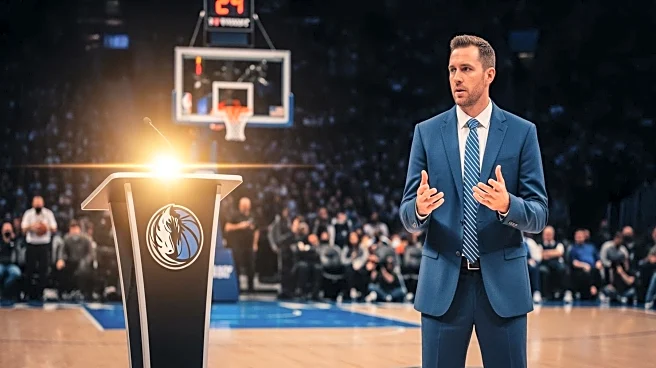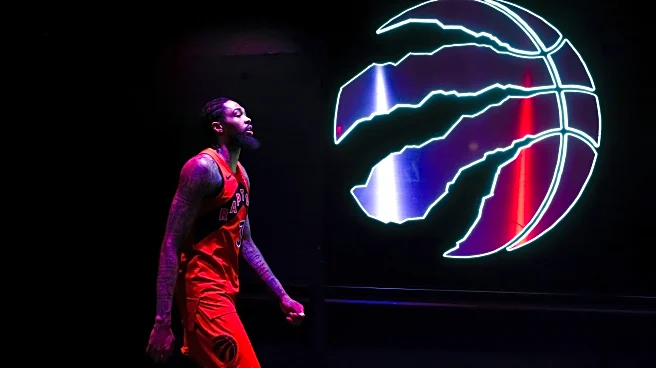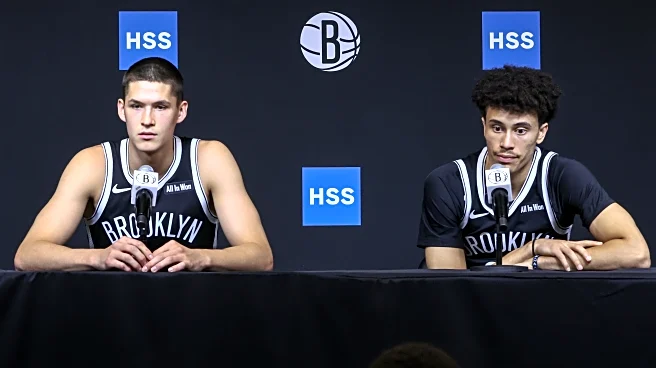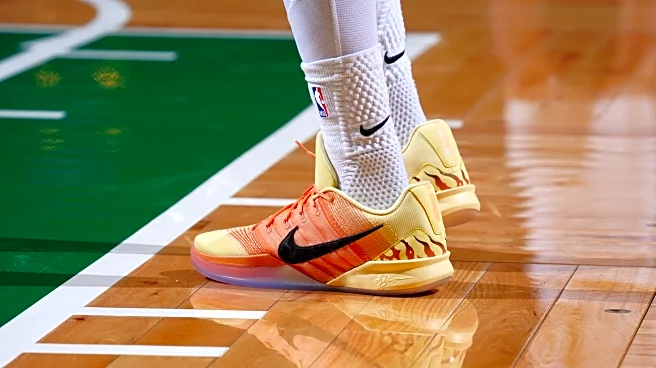What's Happening?
The Dallas Mavericks are entering the regular season with high expectations for Cooper Flagg, the No. 1 overall pick in the draft. Head coach Jason Kidd has decided to challenge Flagg by placing him in the point
guard position, a move intended to test his adaptability and leadership skills. Kidd has expressed confidence in Flagg's ability to handle the pressure, stating that it's acceptable for him to make mistakes as part of his growth process. The veteran roster has reportedly embraced Flagg's leadership, which is unusual for a rookie in the NBA. With Kyrie Irving currently sidelined, Flagg may assume the role of primary ball handler, further solidifying his importance to the team's strategy.
Why It's Important?
Cooper Flagg's integration into the Mavericks as a leader is significant for several reasons. It highlights the team's willingness to invest in young talent and adapt their strategies to accommodate emerging players. This decision could influence the team's performance and dynamics, potentially leading to a shift in how rookies are perceived and utilized in the NBA. Flagg's success or struggles in this role will likely impact the Mavericks' season and could set a precedent for other teams considering similar approaches with their rookies. The team's reliance on Flagg during Irving's absence underscores the importance of developing versatile players who can fill multiple roles.
What's Next?
As the regular season approaches, the Mavericks will continue to monitor Flagg's performance and adaptability in his new role. The team's strategy may evolve based on his success as a point guard and leader. Stakeholders, including fans and analysts, will be watching closely to see how Flagg's presence affects the team's overall performance. If Flagg excels, it could lead to increased confidence in his abilities and potentially more responsibilities. Conversely, if he struggles, the team may need to reassess their approach and make adjustments to support his development.
Beyond the Headlines
Flagg's situation raises broader questions about the role of young athletes in professional sports and the pressures they face. The Mavericks' decision to place him in a leadership position so early in his career could influence how other teams approach player development. It also highlights the cultural shift towards valuing potential and adaptability over experience, which could have long-term implications for team dynamics and player management in the NBA.










